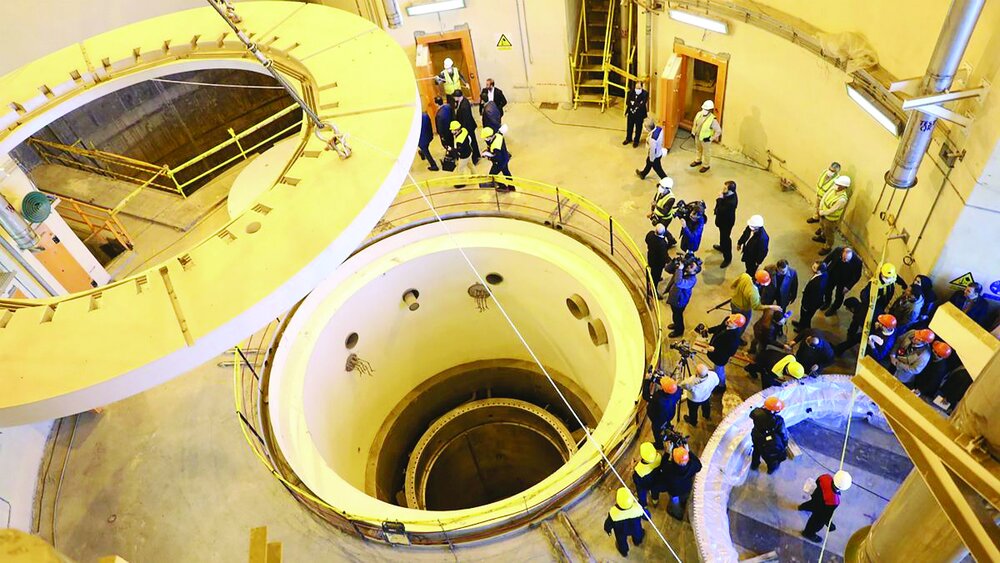IAEA report rebuking Iran highlights Malley self-fulfilling prophecy

TEHRAN – In what appeared a concerted effort to turn up the heat on Tehran, the United Nations’ nuclear watchdog has released a new report admonishing Iran for allegedly not giving answers to questions raised indirectly by Israel.
While talks in Vienna over reviving the 2015 Iran nuclear deal, officially known as the Joint Comprehensive Plan of Action (JCPOA), still hang in the balance due to U.S. stonewalling over a range of issues raised by Iran, the International Atomic Energy Agency (IAEA) released its fresh report on the state of cooperation with Tehran. It accused Iran of not providing credible explanations on three sites in which uranium particles have been allegedly found.
“Iran has not provided explanations that are technically credible in relation to the Agency's findings at those locations,” the report said according to Reuters. It added, “The Agency remains ready to engage without delay with Iran to resolve all of these matters.”
The report couldn’t come at a more delicate moment for the state of play between Iran and the IAEA. Next week, the IAEA’s 35-nation Board of Governors will meet. And some media and diplomatic circles are already pushing for censure against Iran in the meeting. Reuters said that development could set up a new diplomatic clash with the West.
Iranian officials said the IAEA report does not reflect the level of cooperation between Iran and the Agency. Mohammad Reza Ghaebi, the acting head of Iran's permanent representative to the Vienna-based International Organizations, said the report is one-sided and fails to reflect Iran's considerable cooperation with the IAEA.
In its first reaction to the report, France called on Iran to provide answers to the IAEA questions on its past nuclear activities.
The report, coupled with an Israel-orchestrated campaign targeting Iran-IAEA relations, seems to be part of a plan aimed at tightening the loose on Iran amid growing frustrations over the Vienna talks.
On May 24, the Wall Street Journal claimed that Iran used secret IAEA records to evade nuclear probes. Citing Middle East intelligence officials and documents, the paper alleged that “Iran secured access to secret United Nations atomic agency reports almost two decades ago and circulated the documents among top officials who prepared cover stories and falsified a record to conceal suspected past work on nuclear weapons.”
It didn’t identify its “Middle East intelligence officials”, but it seems that they were from Israel. On Tuesday, Israeli Prime Minister Naftali Bennett published alleged Iranian documents that are very much aligned with the Journal report.
The kerfuffle over Iran-IAEA cooperation comes at a time when the Vienna talks over reviving the JCPOA have come to a standstill, with American officials getting filled with dismay by the never-ending lull in the talks. And this lull is the direct outcome of the U.S. behavior in the Vienna talks.
The U.S. accused Iran of presenting demands that fall beyond the scope of the 2015 nuclear pact, an allegation Iran denies. Iranian officials said that they demanded the U.S. do certain measures to enable Iran to fully benefit from any sanctions relief under the JCPOA.
The U.S. blame game has now brought the talks to a halt. In his recent testimony before the Senate Foreign Relations Committee, the U.S. Special Envoy for Iran stuck a pessimistic note on the Vienna talks.
“As I speak to you today, we do not have a deal with Iran and prospects for reaching one are, at best, tenuous,” Rob Malley told senators. He blamed the lull in talks on Iran, saying that if Iran maintains demands that go beyond the scope of the JCPOA, there will be no deal.
This assessment is similar to what he said in a previous, closed-doors briefing in Congress in which he said that he wouldn’t bet on any successful conclusion of the talks.
This is while many pundits and officials believe that the conclusion of the talks depends on the U.S. making political decisions required to resolved some outstanding issues.
Mikhail Ulyanov, Permanent Representative of Russia to International Organizations in Vienna, said Tuesday that the ball is now in the U.S. court. “The #ViennaTalks on #JCPAOA remain on pause since March 10. According to mass media reports, Iran during the recent visit of the #EU Coordinator to Tehran demonstrated certain degree of flexibility and now waits for a response from the US side. The ball is in #Washington’s court,” he said on Twitter.
However, Iran continues its diplomatic efforts. Ali Bagheri Kani, Iran’s chief negotiator, left Tehran for Oslo on Tuesday. “Today, I departed for Oslo in continuation of recent regional and international consultations. Serious talks over bilateral, regional and international issues are on the agenda of this trip. We stress development of relations between Iran and Norway along with our efforts to secure [our] national interests including the removal of illegal sanctions,” he said on Twitter.
Leave a Comment